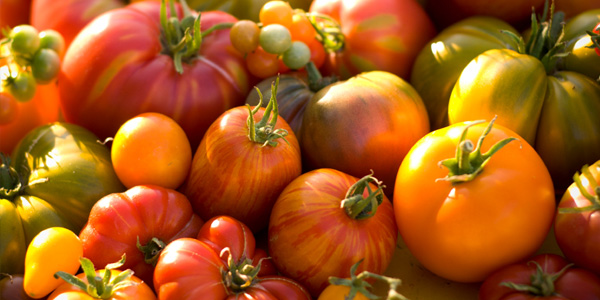
The Health Benefits Of Kale
 My mother scattered some seeds in a pot for me a few weeks ago. I had no idea what they were but I proceeded to water the pot diligently hoping it was something I love. Well much to my surprise I now have a large pot full of kale! They are still growing and maturing, but I can easily recognize their curled up deep green leaves.
My mother scattered some seeds in a pot for me a few weeks ago. I had no idea what they were but I proceeded to water the pot diligently hoping it was something I love. Well much to my surprise I now have a large pot full of kale! They are still growing and maturing, but I can easily recognize their curled up deep green leaves.
Some of you may cringe at the thought of eating kale, while others may be riling in pleasure. I find there are those who love it and those who hate it. I'm hoping that I may convince some of you who hate it to come over to the other side. Why? Because there is no doubt that kale is a super food and I highly recommend it as a part of a healthy plant rich diet.
ORAC (oxygen radical absorbance capacity) is a system of categorizing foods by their antioxidant power. Remember antioxidants are the nutrients that help our bodies to render free-radicals harmless and remove them. Free radicals are the unstable molecules that can promote cancer and other tissue damage that rob us of our health.
Kale, a descendent of the wild cabbage and originating in Asia Minor, is typically the highest scoring food on the ORAC charts packing a value of 1770. To give you an idea of how powerful kale is as an antioxidant, the next best food is spinach with a number of 1260.
The antioxidants in kale include lutein and zeaxanthin. Both of these carotenoids are protective of the lens of the eye and against macular degeneration. Kale, like the other brassica vegetables, has powerful phytochemicals that are believed to be cancer protective. These leafy greens are abundant in Vitamin C, Vitamin A, calcium, iron and Vitamin K.
Kale can be used sparingly when juicing, no more than 1/3 of the juice. The best method to prepare kale for taste and nutrient value is to steam it al dente (about 5 minutes). Cutting the leaves down into thin slices will enhance the activation of the enzyme myrosinase, promoting the health benefits of the greens. It is not recommended to boil, saute or bake with kale. It's low moisture content causes it to dry out when sauteing.
Kale is a low calorie, nutrient dense food that when prepared properly will bring palatable healthful goodness to any diet. It will even grow through a frost. In fact it is said that the cold temperatures give it a sweeter taste. How do you eat kale?
Are you ready to take your health into your own hands? Primo Health Coach can help you begin this journey by assessing your current nutrition status and developing a Wellness Plan. Join today for a FREE consultation!
Sources
The 150 Healthiest Foods on Earth, Jonny Bowden
The Encyclopedia of Healing Foods, Michael Murray
The World's Healthiest Foods, George Mateljan


